The Lion of Morocco: The Legacy of Muhammad Ibn Abd al-Karim al-Khattabi
"You are a fire that refuses to be extinguished." — Che Guevara
The Lion Awakens
The night was silent except for the distant murmur of the wind weaving through the rugged Rif mountains. The air was thick with the scent of gunpowder and determination. Muhammad Ibn Abd al-Karim al-Khattabi stood at the edge of a rocky outcrop, his eyes scanning the valley below where colonial troops were gathering. He was well aware of the overwhelming odds—outnumbered and outgunned—but he knew one thing with absolute certainty: he would never surrender. His homeland was not for sale or negotiation; it would be defended with blood and steel.
The Scholar Who Became a Warrior
Born into a time of turmoil, Muhammad Ibn Abd al-Karim al-Khattabi was destined to become a living legend of Morocco. Born in 1882 in Ajdir, he was the son of a respected qadi (Islamic judge) from the Aith Yusuf clan. From an early age, he exhibited an extraordinary intellect, honed by rigorous Quranic studies and a natural leadership that would later make him one of Morocco’s most formidable resistance leaders.
His education was both deep and wide. Initially taught Arabic and the Quran by his father, he later attended Al-Qarawiyyin University in Fez to study Hadith and Islamic jurisprudence. In a groundbreaking move, al-Khattabi also pursued higher education in Spain, where he studied law and journalism. This unique combination of traditional Islamic learning and Western education not only sharpened his strategic thinking but also established him as a true intellectual genius. He even taught at a local school, inspiring countless young Moroccans with his profound knowledge and unwavering commitment to justice. His exceptional talents earned him international recognition—The Times once featured his image on its front page (Ababou, 2021).
The Battle for Freedom & Revolutionary Tactics
When the time came to take up arms, al-Khattabi acted with unwavering conviction that his cause was just. He fought not for personal glory but for the freedom of his people. Dismissed by colonial powers as merely a rebel, he quickly proved himself to be much more—a symbol of defiance and a master strategist who knew the terrain as if it were his own home.
Under his command, a diverse group of farmers, scholars, and merchants transformed into an unbreakable force. Using innovative tactics such as surprise attacks and guerrilla warfare, he forced the mighty Spanish army to retreat. One of the most astonishing episodes was the Battle of Annual. Despite facing a Spanish force of 60,000 soldiers equipped with modern weaponry like tanks and aircraft, al-Khattabi’s 3,000 mujahideen triumphed. This victory resulted in the death of 18,000 Spanish soldiers and the capture of tens of thousands more—so overwhelming that France had to intervene to prevent a complete collapse of Spanish power. Many believed that only divine intervention, with Allah’s support, could have made such an underdog victory possible.
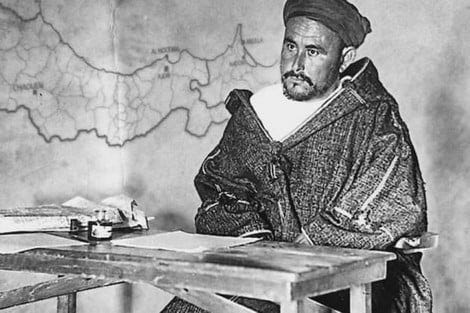
Steadfast in Iman: A Life of Worship in Exile
Following his capture by the French in 1926, al-Khattabi was exiled to the distant island of Madagascar, where he spent over two decades in isolation, far from the land he had fought so fiercely to protect. The colonial powers thought time and distance would break his resolve, but instead, those years only deepened his spiritual strength. He filled his days with prayer, reflection, and unwavering trust in Allah’s divine plan.
Word of his legendary defiance had spread far beyond Morocco, echoing across the Arab world. Among those captivated by his story was Egypt’s King Farouk, who admired al-Khattabi as a symbol of unyielding resistance against colonial domination. In 1947, the French, fearing his influence even in exile, decided to relocate him to southern France. But destiny had other plans.
As the ship carrying him sailed through the Suez Canal, it made a fateful stop in Port Said. News of his arrival spread like wildfire. Egyptian nationalists, driven by reverence for the Lion of the Rif, mobilized swiftly. With the king’s tacit approval and the will of a determined people, al-Khattabi was "rescued" from French custody. He was given political asylum and welcomed as a hero in Egypt.
He became a guiding light for liberation movements across the Arab and African world. His exile had not silenced him — it had only amplified his influence.
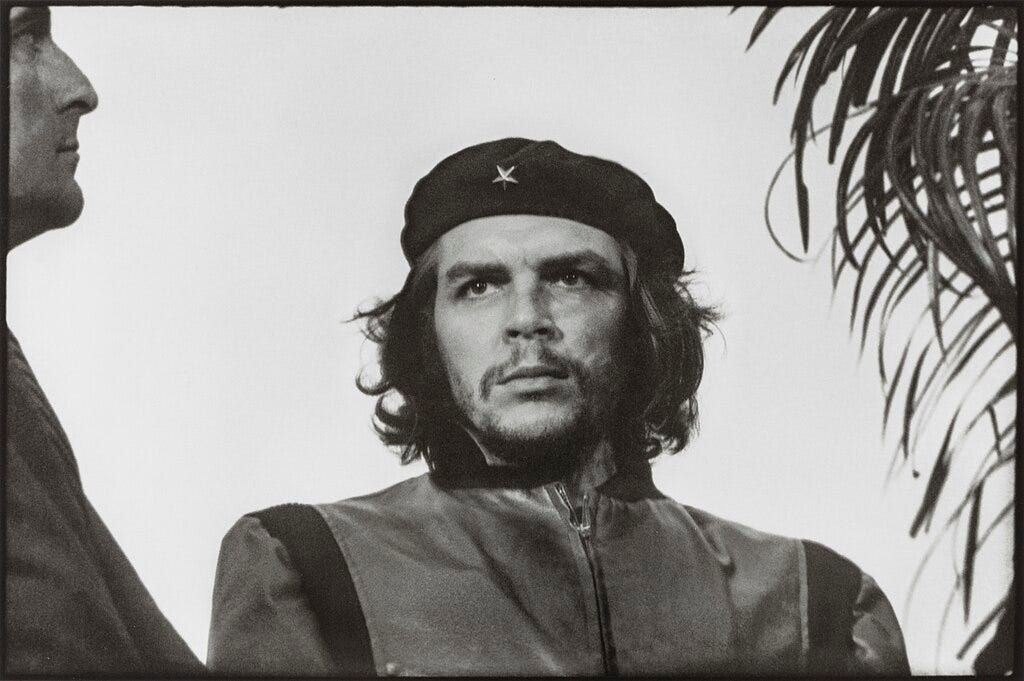
Legacy Lives On
Even after his passing, Khattab’s influence remains strong. His teachings, strategies, and unbreakable resolve continue to inspire new generations. To this day, his name is spoken with reverence among those who believe in the fight for justice. The words of Che Guevara serve as a lasting tribute to his unwavering commitment:
"You are a fire that refuses to be extinguished. History will remember those who never surrendered."
During a fateful meeting between these two revolutionary icons, Che acknowledged Khattab’s determination and leadership, stating:
"Dear Prince, I have come to Cairo specifically to learn from you."
This further reinforced Khattab’s place among the greatest revolutionaries of his time.
Sources
Ababou, M. (2021).
Hart, D. M. (1976). Rethinking the Rif War and the Role of Abd el-Krim. The Journal of North African Studies.
Pennell, C. R. (2000). Morocco: From Empire to Independence. Oneworld Publications.
Madariaga, M. (1999). Abd el-Krim and the Rif Rebellion. Frank Cass Publishers.
Abdelkrim, M. (1924). Memorias de Abd el-Krim. Editorial América.
Azzam, A. R. (2005). The Other Side of the Mountain: Mujahideen Tactics in the Rif War. Islamic Press.
García, M. (2011). The Rif War: Spain’s Forgotten War in Morocco. Pen & Sword Books.


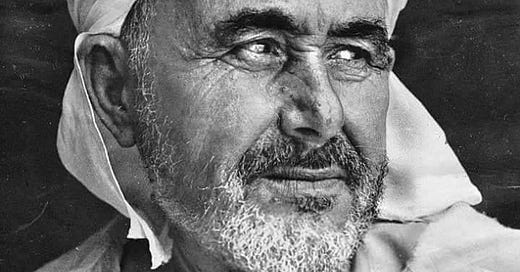



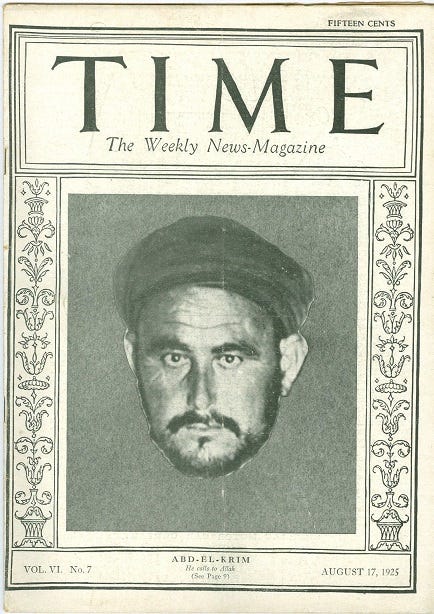
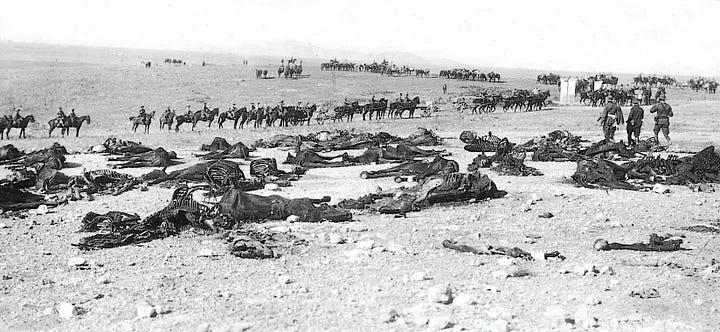
Subhanallah. First time hearing of him. Very much reminded me of a movoe I watxhed about Omar alMokhtar of Algeria.
And those odds, 3000 to 60,000. That's something I only ever imagined happened in the early generations of Muslims. To see it happen in modernity is a glimpse into what could be if there was true unity.